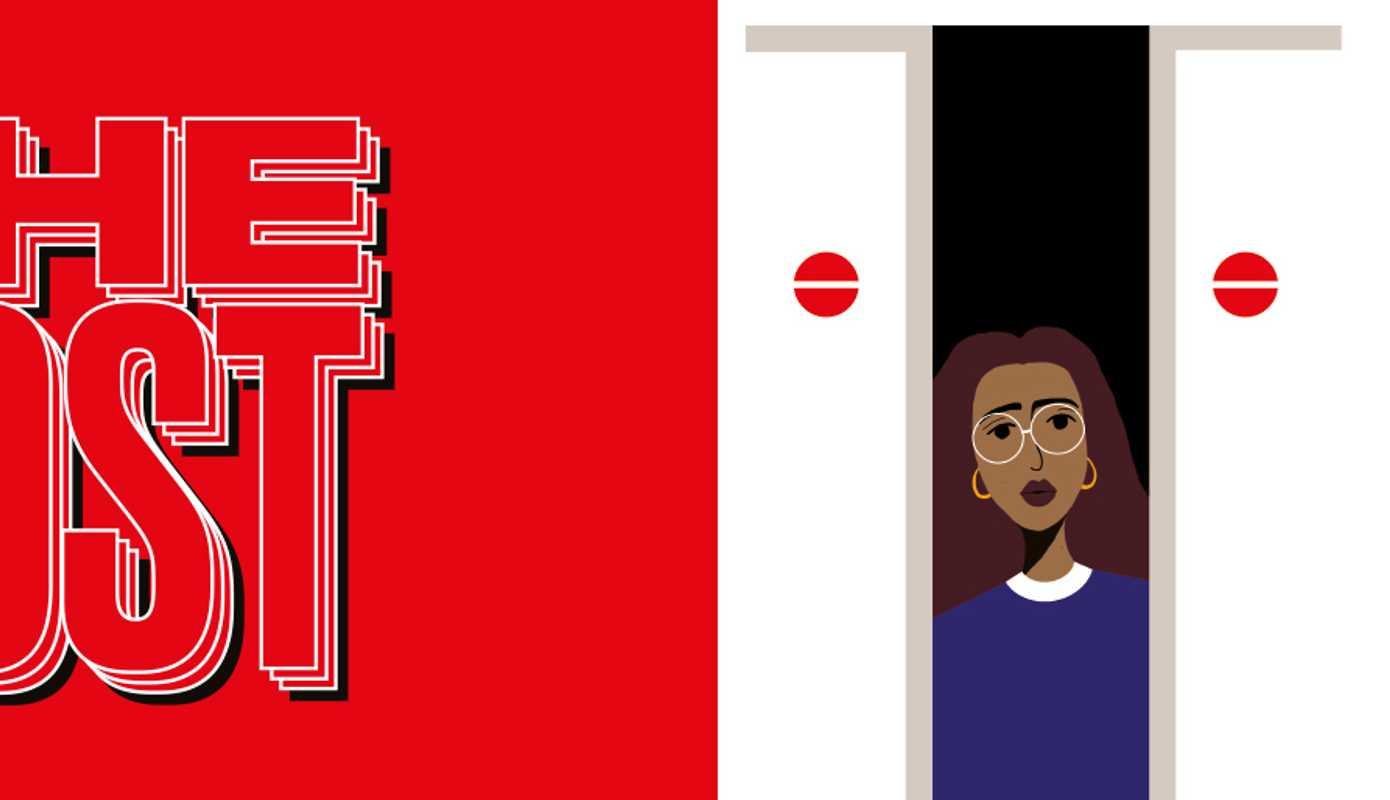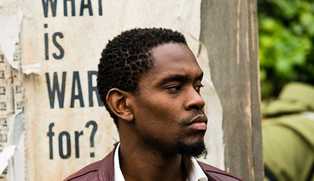Home is not where you were born; home is where all your attempts to escape cease.
– Jarr Nai’em, Omar Taher
I left my hometown in Morocco when I turned 18 with 2 suitcases and plenty of dreams. My parents, my friends and my society encouraged me to view France as the symbol of success, the home of knowledge and the beacon of culture. I left behind me my mother, my father, my sister, my brother, my grandmother, my uncles and aunts. I left behind me the hills of Beni Meraaz, the mountains of the Rif, the Mediterranean and the Atlantic sea. I also left my fears and frustrations behind: I was an adventurer, and it was time for me to start my quest for greater freedom and independence. How ironic was it to seek independence in the same country that colonised my ancestors, and scarred the minds and souls of so many other nations?
Being a newcomer means having to learn about the social contracts of the host country, receiving injunctions to adapt to engraved and fossilised norms. This is who we are, marche ou crève. Since leaving my motherland, there has always been a sense of inadequacy: not being good enough, not knowing enough. Attending meetings, joining movements, I felt like I was intruding, somehow, not able to give as others can. I worried about my immigration status, fearing the consequences of participating in actions while on uncharted territory — territory where I am not sure my presence is welcome. The imposter syndrome grew stronger. The child once a prodigy in her native land feels like a fraud on foreign shores.
After many years of trying to fit in and to be a good migrant, I’d had enough. Enough of speaking the language that asphyxiated my mother tongue and filled me with resentment and bitterness. Enough of never knowing or doing enough to be part of the discussion as an equal. I kept moving, forever freshly arrived to spaces and already-made structures.
Leaving France meant starting the process with a rupture long overdue. Speaking French was not a fatality anymore; being a North African in the Metropole Mama Fransa didn’t have to be the endpoint. I was changed by that experience, and I was eager to return to the homeland to contribute, to give back. The person I became, however, could no longer exist the same way in Morocco without fear, without having to hide a big part of her life. When return is no longer an option, resettlement can be an opportunity for healing. If I was to be condemned to exile, it’d better not be in the country that imposed colonial domination on my people. I would go to other lands, reinvent myself, continue being myself, speak other languages, and break that inferiority complex for good.
I was aware that going to England was not a neutral choice; it was not the antidote to France. If anything, both countries share a very similar colonial past. Both have been the biggest empires, and both have imposed their domination by the word and the sword. And a person from a country that has been colonised by England might feel the same feelings I had back in France. So, this was a conscious, but also very personal, choice. Not replicable, not extendable. And many experiences of migration are like this. One can get inspired by the stories of the people that preceded them in a movement towards new lands, but they will ultimately have their singular experience, composed of their past lives, the luggage they brought with them, and their hopes and expectations for the future.
In London, I was still lost between the binaries: you, me, they, we, us, them. I didn’t fit on either side. Not a “victim”, and not entitled enough to organise on behalf of absent bodies and voices. Attending general assemblies, I found myself looking for those who, like me, have fought to cross borders only to realise that they have now disappeared in the margins of this new society. I found myself filling the gaps between “them” and “us” with my body. Who, if not us? Who, if not the people whose tongues can still roll the Rs and whose bodies can still withstand the burden of carrying others across borders?
So, it is only logical that I ended up working in the field of migration. From the mountains of the Rif, where my ancestors lived, to the shores of Rabat, where I grew up, passing through France, where my university degrees were awarded, my path brought me here to London, to be the face of a refugee resettlement program.
And here I am today, standing in Gatwick airport, waiting for a family fleeing their war-torn country to land in the UK. Every time I wait in this arrival hall, my heart clutches to all the hopes I have to make a life for myself in this country, and I remind myself of how I blossomed away from home. This can be a new page for them to heal, get respite and move forward with their lives, I think to myself. I recognise the faces on the UNHCR files I read to prepare for the arrival of the family. I call them by their first names, a long-lost friend coming to the rescue. A smile on the face of the women, a hug sometimes, a shy handshake often. I introduce myself in Arabic and explain that we are here to accompany the family in this new chapter of their life. I can see the relief in their eyes, tense muscles relaxing.
Working with displaced families seeking sanctuary has forced me to stay still and to be grounded, so I can extend that feeling to the people who have just arrived. I use my mother tongue as a bridge for people who have no other linguistic option. In our team, tongues are the main vessel carrying people into sanctuary.
One woman compares her entry through the arrival hall of the airport as a second birth, the airport door opening up and her body coming out of it as a newborn. She lays her eyes on me, and I greet her with a large smile. I utter phrases like: welcome to the UK, we are excited to have you here. Everything that you will face, we will face together. Don’t feel scared by this new chapter of your life; some things will be confusing, but we will sort out the confusion together. We don’t have the answers to all the questions, but we do our best to pursue them, or to draw a plan allowing us to figure them out.
Tired bodies shuttled through airports arrive in the UK without knowing what their host really expects from them. Some want to thank the Queen for her generosity. They think we might get that message to her personally. I often find myself delving into the political structures of the country — right after explaining where the toilets are, and how to access the internet to reassure relatives.
We explaining processes to people who have just arrived in the country, giving them the tools to re-invent themselves, and reasons to get excited, and keep alive and curious. We discuss life, marriage, food, health and learning, and dream of future projects. Nothing is left untouched, and the unspoken is louder than words. The thought that every day of my work contributes to shaping the politics of hospitality in a country where I am myself a guest keeps me going.
Sitting in a circle, I try to remember everyone’s story, everyone’s history. Archiving from below, making a mental sketch of everyone’s faces, I choose the most simple and clear words so my thoughts can be accessible to everyone. Let’s create our own ground rules, discuss roles and agree on shared goals. The pulse of a newly-forming community can be felt between the frustrations and the excitements of their fresh beginnings. The past is never too far, and while the wounds turn into scars, they keep hurting. Vicarious trauma waits around the corner, and for us, the pressure to get the job right makes anxiety levels rise. There are too few of us working on the frontline to sustain the weight of all those traumas and offer spaces of healing. So, our backs crack. Some of us burn out. We find ourselves surviving, mirroring the feelings and frustrations of the people we support. The biggest pitfall we need to fight against is the temptation to give the answer: this is the way it is here. Marche ou crève.
The arrival of new people in a society should allow us to open a conversation about what the space or society is. It offers us a chance to renew our consent on the social contract that rules our lives, and gives a chance for the newcomers to give their own informed consent. How do we make our daily routine inclusive, and how do we take the time to explain the worth and origins of our values to those who didn’t witness their creation?
This means having the resources to be comfortable in our roles of welcomers; finding the time to engage in lengthy conversations; looking at the situation of newcomers from a multiplicity of perspectives, with theirs first and foremost. It also means offering people who have arrived into the country previously the opportunity to contribute to the welcoming and settling process, a rite of passage that helps migrants and refugees feel rooted: finally, all those efforts to solve administrative hassles and riddles come to use and have a purpose. The plight of one migrant group can be listened to and transferred as learning to the next groups. And maybe only then can we feel that we didn’t suffer in vain. Only then can we move on to being part of the collective consciousness, and sharing the title of hosts in what has now become our home.



